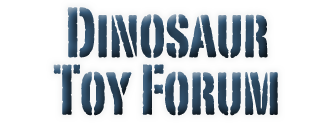- Welcome to Dinosaur Toy Forum.
News:
Dinosaur Toy Forum Diorama Contest 2024 – see all the entries and vote here!
You can support the Dinosaur Toy Forum by making dino-purchases through these links to Ebay and Amazon. Disclaimer: these and other links to Ebay.com and Amazon.com on the Dinosaur Toy Forum are often affiliate links, so when you make purchases through them we may make a commission.
"New Research Shows That T-Rex Was as Smart as a Chimp"
Started by Simon, May 05, 2018, 05:03:01 AM
Previous topic - Next topic
User actions




